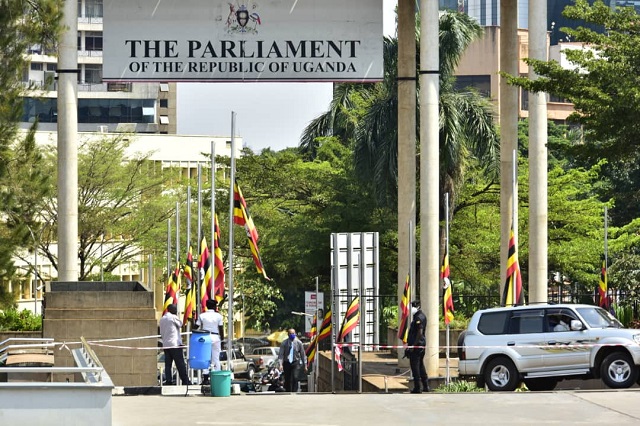Parliament has at long last passed the National Health Insurance Scheme (NHIS) Bill, which seeks to provide universal healthcare to all Ugandans.
The passing came after members rejected Health State Minister in charge of general duties Robinah Nabanja’s motion to withdraw the Bill. Ms Nabanja said the government wanted to withdraw the Bill pending more consultations.
“The minister of health in collaboration with other stakeholders is undertaking further consultations and analysis of the premiums based on the interim actuarial study conducted by the IRA in collaboration with the Ministry of Health in 2019. We expect to reintroduce the Bill when this outstanding issue is concluded to ensure a universal enrolment of the population in Uganda under the NHIS,” Ms Nabanja said.
Minister Nabbanja then declined to move the motion for the second reading of the Bill. Shortly, she left Parliament.
Mr Patrick Nsamba Oshabe, the MP for Kassanda North, questioned if Parliament could continue to debate the Bill in the absence of the minister.
The members, however, led by the State Minister for Finance in charge of planning, Mr David Bahati, agreed to move the motion for the second reading of the Bill
Dr Micheal Bukenya, the chairperson of the Parliament Health Committee, said the controversial clauses that had held the Bill were removed, as more consultations are being done.
“Contribution to the scheme shall be based on actuarial variation. This is done by scientists, insurers who are competent in assessing how much people can afford to pay. The law allows actuarial valuations to be done regularly and to be discussed and then agree to a position that is acceptable to everybody. In the law itself, the premium is not there,” Dr Bukenya said.
The Bill had earlier proposed that employees in the formal sector will be subjected to a four per cent deduction from their salaries while their employers will contribute one per cent to the health scheme. Individuals in the informal sector would be required to pay a proposed Shs100,000 annually.
However, this received opposition from some sections of the public, especially workers in the formal sector, who said they are burdened by various taxes.
Parliament also agreed that the scheme will be implemented in a phased manner, since the government cannot get all the resources at once.
Data from the Ministry of Health indicates that the total annual health expenditure stands at Shs7.5 trillion. Of this, 15 per cent is from government funding, 42 per cent from donors, 41 per cent from individuals (out of pocket) when they fall sick and only two per cent from pre-payment mechanisms.
Cabinet approved the Bill in 2019 and it was tabled on the floor of Parliament in August 2019.
In 2006, when government announced plans to introduce the NHIS where all Ugandan residents would be required to have a health insurance policy, many stakeholders criticised the plan claiming its another burden to employees.
The Bill now awaits the President’s signature to become law. Mr Birahwa Mukitale, the MP for Buliisa, said: “What better way can the 10th Parliament have a climax than giving Ugandans the health law. The 10th Parliament has been pro poor.”











